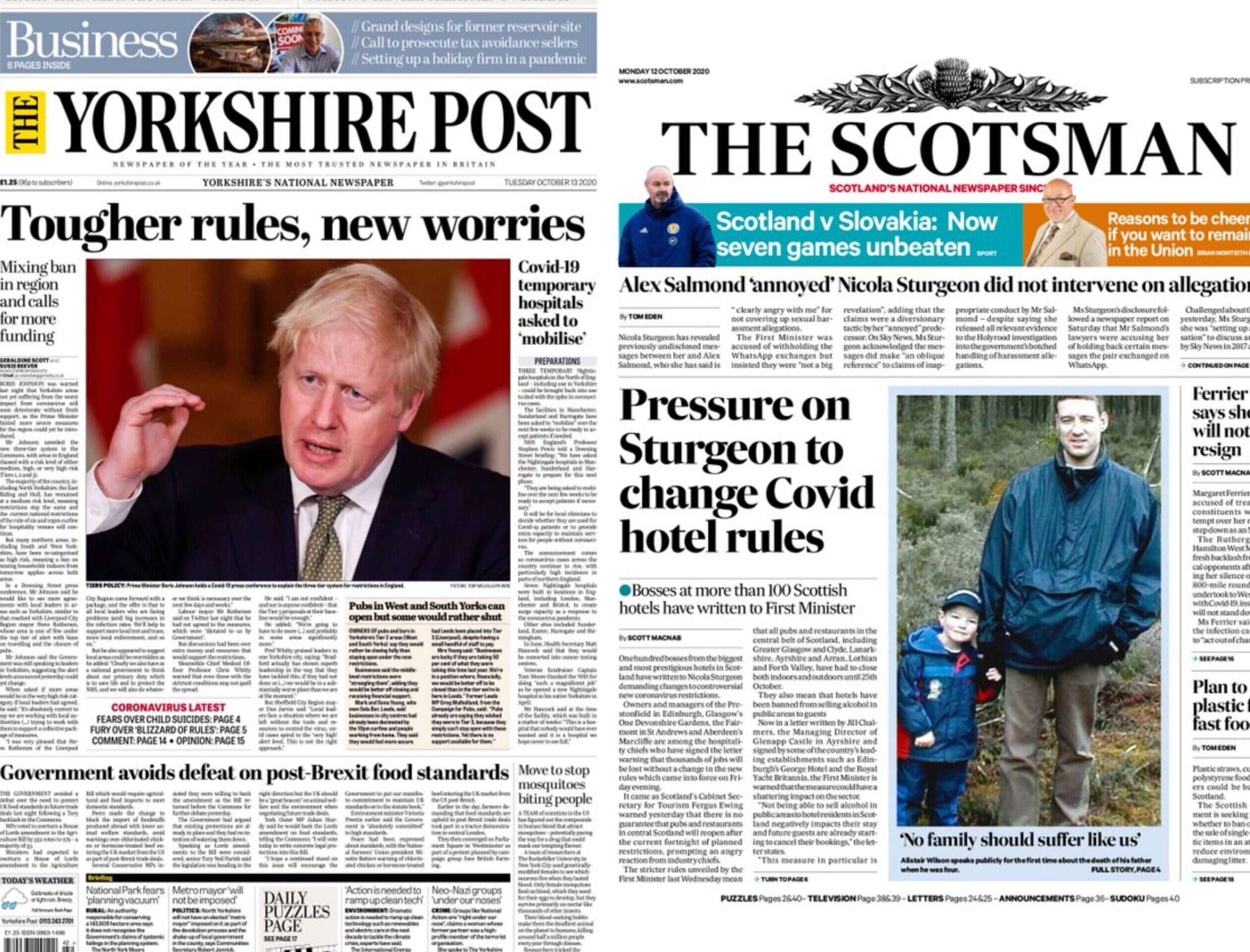
JPI Media has kept its revenue decline broadly in line with the rest of the UK regional press industry, with its flagship Yorkshire Post and Scotsman now especially “critical” to its value, according to analysis of its first full-year accounts.
Douglas McCabe, chief executive of Enders Analysis, told Press Gazette a nuanced balance of “locally-agile contributions, donations and community network” solutions would help JPI’s titles succeed going forward.
JPI owns more than 150 newspaper titles and hundreds of websites, including the Sunderland Echo, Sheffield Star and The News in Portsmouth, after buying Johnston Press’ assets out of administration in November 2018.
Between its incorporation in September of that year and 4 January 2020, JPI Media Holdings made a loss before tax of £47.7m, and an operating loss of £34.5m, on revenues of £145.9m. Its adjusted profit before interest, taxes, depreciation and amortisation on continuing operations was £17.7m.
McCabe said: “JPI revenue declines are broadly in line with industry, at about 28% over two years on a like-for-like basis.”
He noted that the i had proved critical to paying down JPI’s debts, making up £45m of the £65m paid down over the period from its £49.4m sale to Mail publisher DMGT. Some £55m is still owed.
McCabe went on: “It is also clear that the lead titles — the Yorkshire Post and the Scotsman for example — are critical for the value of the estate as a whole.
“More so as margins, which fell rapidly coming into 2020 (partly as a result of the i sale), will have come under even more pressure since.”
JPI has now put the rest of the business up for sale, with rival publisher Archant and ex-Local World boss David Montgomery both understood to have made bids.
McCabe said: “A number of buyers will be interested in pursuing scale synergy benefits. In our opinion, these are becoming more limited, and besides they are not the same as a growth strategy for a trade owner.
“Neither a premium subscription model nor a free model are likely to be the core business structure in the long term.
“A nuanced, locally-agile, contributions, donations and community network solution will have a far greater chance of succeeding.
“But fundamentally any long-term custodian of local media provision will also recognise the need for considerable product and community investment in the near-term.”
Print advertising (£49.3m) and circulation (£52.2m) remained the biggest revenue sources at JPI – 70% of the total – despite falling demand. Digital (£23.2m) made up 15% and the company has now rolled out paywalls on 12 of its websites.
US local media companies are grappling with similar questions about their business models, as advertising and print circulation both continue to decline.
New York Times executive editor Dean Baquet told the FT’s Future of News event on Wednesday: “I don’t know what the answer is for local news. I really don’t.”
Cynthia DuBose, senior editor for special projects at McClatchy, told a separate panel that the publisher’s work over the past few years towards a 50/50 split between subscriptions and advertising had allowed vital coverage to continue throughout the Covid-19 crisis this year without furloughs, job cuts or salary reductions in the news divisions.
She said: “Moving forward, we are convinced it isn’t just going to be subscriptions replacing advertising – there really has to be the right mix,” adding McClatchy was looking at combining these revenue streams with community funding and sponsorships.
“We’re not necessarily looking at this as one replacing the other but figuring out what the right mix is going to be to help us going forward.”
Speaking on the same panel Jennifer Napier-Pearce, editor of the Salt Lake Tribune until August, suggested subscriptions can supplant advertising declines at local newspapers.
And she said of the challenges posed by Covid-19: “After the turbulence of the last decade, newsrooms are uniquely adapted to go with the flow and be flexible.”
Email pged@pressgazette.co.uk to point out mistakes, provide story tips or send in a letter for publication on our "Letters Page" blog
